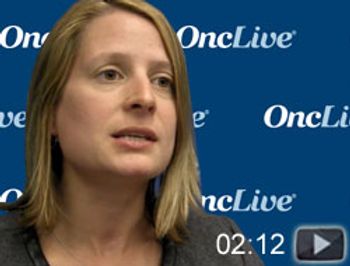
Maria Schwaederle, PharmD, Center for Personalized Cancer Therapy and Division of Hematology and Oncology, University of California, San Diego, discusses results of a meta-analysis of 13,203 patients in phase I clinical trials.

Your AI-Trained Oncology Knowledge Connection!


Maria Schwaederle, PharmD, Center for Personalized Cancer Therapy and Division of Hematology and Oncology, University of California, San Diego, discusses results of a meta-analysis of 13,203 patients in phase I clinical trials.
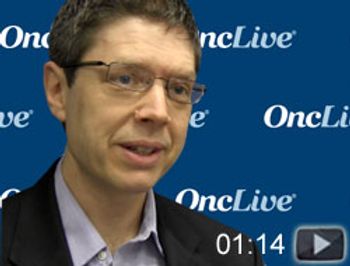
Jeffrey E. Lancet, MD, medical oncologist, Moffitt Cancer Center, discusses results of a randomized phase III study comparing the efficacy of CPX-351 (Vyxeos) versus daunorubicin (7+3) plus cytarabine in older patients with newly diagnosed, high-risk acute myeloid leukemia (AML).
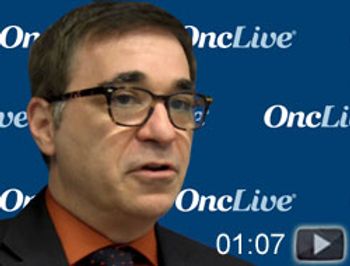
Howard L. Kaufman, MD, chief surgical officer, associate director for clinical science, surgical oncologist, Rutgers Cancer Institute of New Jersey, discusses the phase II JAVELIN Merkel 200 study examining avelumab as a treatment for patients with Merkel cell carcinoma.
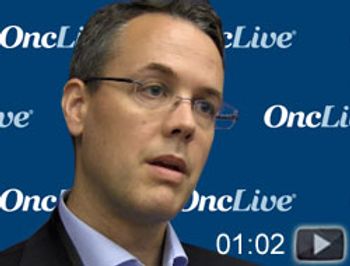
Hendrik-Tobias Arkenau, MD, PhD, founding medical director, executive medical director, Sarah Cannon Research Institute UK, discusses immunotherapy advancements on the horizon in the field of gastric cancer.
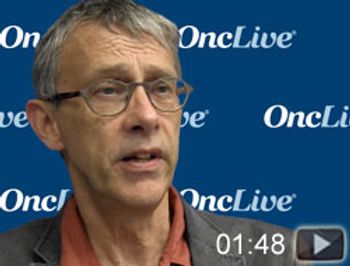
Martin J. Van Den Bent, MD, professor, Neuro-Oncology, Erasmus MC-Daniel den Hoed Cancer Center, the Netherland, discusses the results of an interim analysis of the randomized phase III CANTON trial, which investigated concurrent and adjuvant temozolomide in patients with anaplastic glioma without a 1p/19q co-deletion.
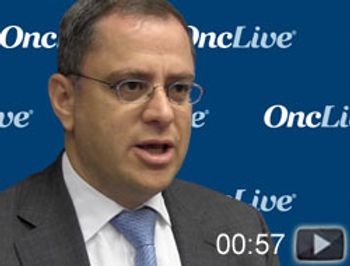
Ghassan K. Abou-Alfa, MD, medical oncologist, Memorial Sloan Kettering Cancer Center, discusses the significance of the RESORCE trial, which explored regorafenib (Stivarga) versus best supportive care for patients with unresectable hepatocellular carcinoma who progressed after receiving sorafenib (Nexavar).

Anthony W. Tolcher, MD, director of clinical research at South Texas Accelerated Research Therapeutics San Antonio, discusses a phase Ib study examining the combination of the 4-1BB agonist utomilumab (PF-05082566) and pembrolizumab (Keytruda) as a treatment for patients with advanced solid tumors.
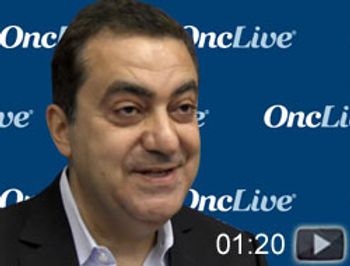
Anas Younes, MD, chief of the Lymphoma Service, Memorial Sloan Kettering Cancer Center, discusses the impact of the FDA approval of nivolumab (Opdivo) for the treatment of patients with classical Hodgkin lymphoma.
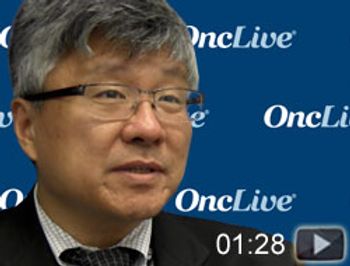
William K. Oh, MD, professor of Medicine, Hematology, and Medical Oncology, and Urology, Mount Sinai Hospital, discusses a global study aimed at recognizing symptom burden in patients with advanced prostate cancer.
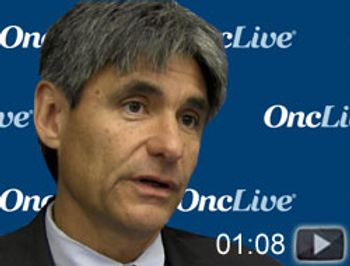
Carlos Becerra, MD, physician, Texas Oncology, discusses a study examining the combination of ribociclib and letrozole in patients with ER-positive, HER2-negative advanced breast cancer.
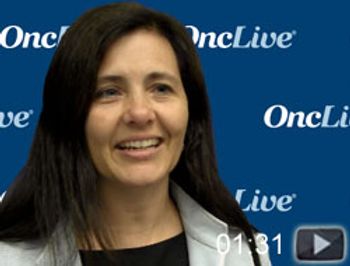
Heather A. Wakelee, MD, associate professor of Medicine (Oncology), Stanford University Medical Center, discusses how immunotherapy agents compare with targeted therapies in patients with non–small cell lung cancer who harbor genetic alternations.
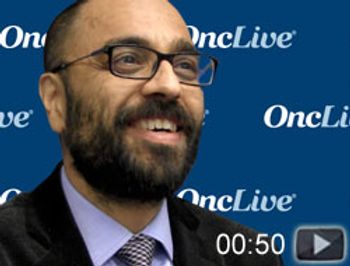
Ajay S. Behl, PhD, Janssen Pharmaceuticals, discusses a study examining the central nervous system (CNS) and dose-reduction events in patients with prostate cancer following treatment with abiraterone acetate (Zytiga) plus prednisone.
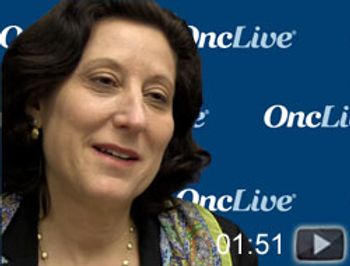
Hope S. Rugo, MD, professor of Medicine and director of the Breast Oncology Clinical Trials Program at the UCSF Hellen Diller Family Comprehensive Cancer Center, discusses the results of the SWISH trial, which examined a dexamethasone-based mouthwash for the prevention of everolimus/exemestane stomatitis in postmenopausal women with hormone receptor (HR)-positive metastatic breast cancer.
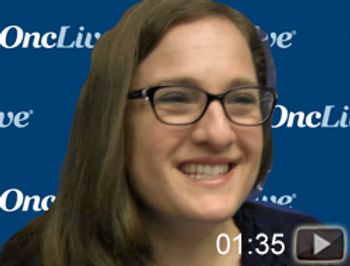

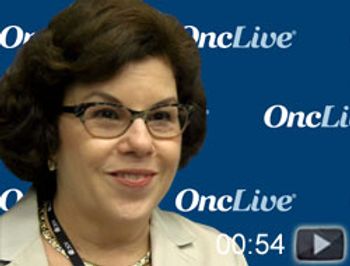
Joanne Blum, MD, PhD, FACP, physician, Texas Oncology, discusses the key takeaways from the phase III ABC (anthracyclines in early breast cancer) trials, which compared docetaxel plus cyclophosphamide versus anthracycline/taxane-based chemotherapy regimens in patients with high-risk, HER2-negative breast cancer.
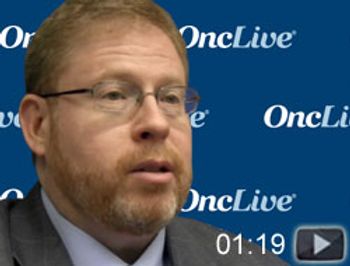
Jonathan E. Rosenberg, MD, medical oncologist, Memorial Sloan Kettering Cancer, discusses ongoing research of and next steps with atezolizumab (Tecentriq) for the treatment of patients with metastatic urothelial carcinoma.

Nicholas J. Robert, MD, medical oncology, hematology, Virginia Cancer Specialists, US Oncology, discusses the MA.17R trial, which explored an extension of adjuvant letrozole for 5 years after completing an initial 5 years of aromatase inhibitor therapy alone or preceded by tamoxifen in postmenopausal women with early-stage breast cancer.
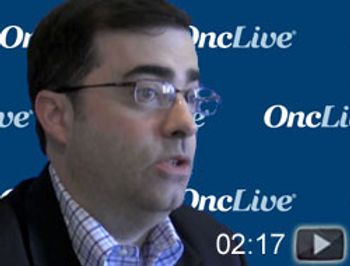
David F. McDermott, MD, associate professor of Medicine, Harvard Medical School, staff physician, director, Biologic Therapy and Cutaneous Oncology Programs, Hematology/Oncology, Beth Israel Deaconess Medical Center, discusses long-term follow-up results of treatment with nivolumab (Opdivo) for patients with renal cell carcinoma (RCC).
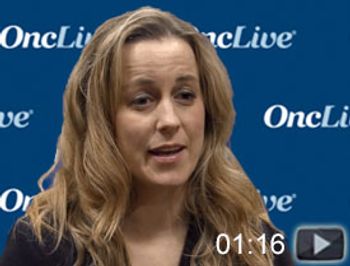
Erika P. Hamilton, MD, director, Breast and Gynecologic Cancer Research Program, principal investigator, Sarah Cannon Research Institute, discusses a phase Ib study examining ONT-380 in combination with trastuzumab emtansine (T-DM1) in patients with HER2-positive breast cancer, and what potential the combination has in the neoadjuvant setting.
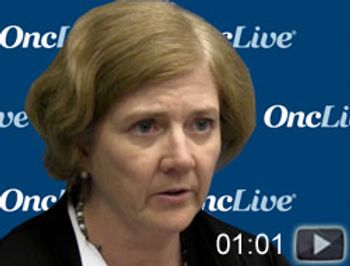
Mary Ellen Taplin, MD, chair, executive committee for Clinical Research, director of Clinical Research, Lank Center for Genitourinary Oncology, institute physician, Dana-Farber Cancer Institute, associate professor of Medicine, Harvard Medical School, discusses the ongoing ARMOR 3-SV trial for patients with metastatic castration-resistant prostate cancer (mCRPC).
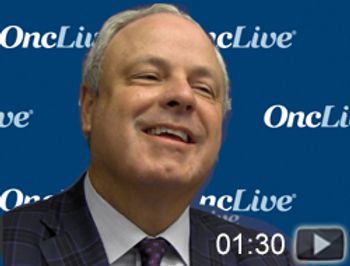
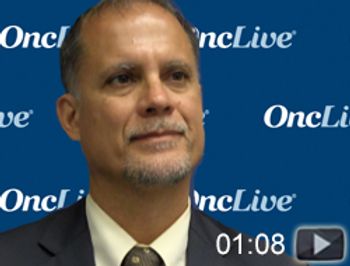
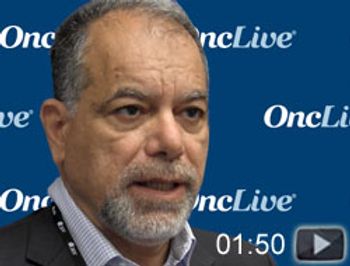
Fred Saad, MD, professor and chairman of Urology, director of GU Oncology, the University of Montreal Hospital Centers, discusses results of an analysis that examined which patients with metastatic castration-resistant prostate cancer are able to receive the recommended 6-doses of radium-223 dichloride (Xofigo).
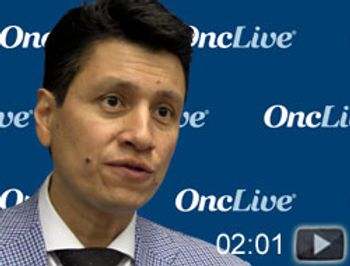
Jorge A. Garcia, MD, Department of Hematology and Oncology, discusses the results of the phase III METEOR trial, which compared the efficacy of cabozantinib (Cabometyx) versus everolimus (Afinitor) in patients with advanced renal cell carcinoma.
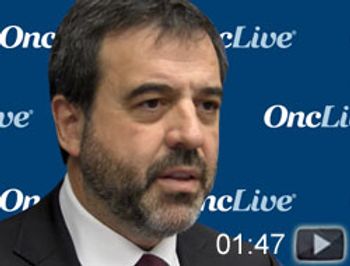
Francisco J. Esteva, MD, PhD, medical oncology, New York Langone Medical Center, discusses a phase III study of the biosimilar version of trastuzumab (Herceptin) in patients with HER2-positive metastatic breast cancer.
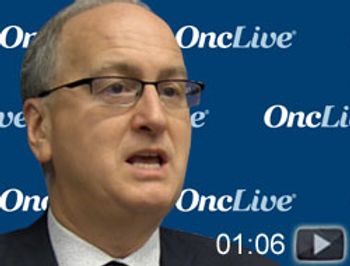
David M. Nanus, MD, medical oncologist, Weill Cornell Medicine and NewYork-Presbyterian Hospital, discusses the unanswered questions that remain with atezolizumab (Tecentriq) in patients with metastatic urothelial carcinoma (mUC).
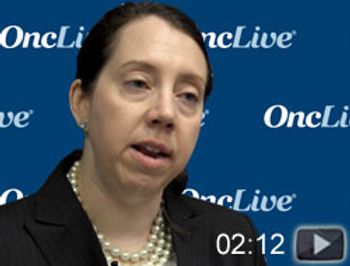
Allison W. Kurian, MD, MSc, associate professor of Medicine and of Health Research and Policy, Stanford University School of Medicine, discusses an ongoing trial exploring the association of ovarian cancer risk with mutations detected by multiple-gene germline sequencing in 95,561 women.
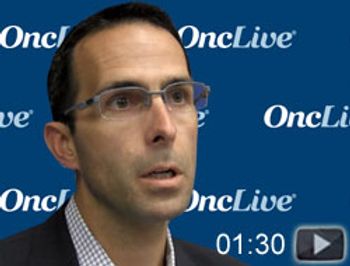
Todd Bauer, MD, associate director, Drug Development, principal investigator, Sarah Cannon Research Institute, discusses the safety and efficacy of single-agent rovalpituzumab tesirine (Rova-T), a delta-like protein 3 (DLL3)-targeted antibody-drug conjugate in recurrent/refractory patients with small cell lung cancer (SCLC).

Joshua M. Bauml, MD, assistant professor of Medicine, Hospital of the University of Pennsylvania and the Veteran's Administration Medical Center, discusses the preliminary results of the KEYNOTE-055 study, which investigated pembrolizumab (Keytruda) after failure on platinum-based therapy and cetuximab in patients with head and neck squamous cell carcinoma.